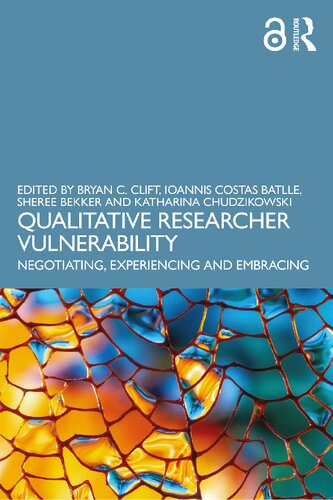

Most ebook files are in PDF format, so you can easily read them using various software such as Foxit Reader or directly on the Google Chrome browser.
Some ebook files are released by publishers in other formats such as .awz, .mobi, .epub, .fb2, etc. You may need to install specific software to read these formats on mobile/PC, such as Calibre.
Please read the tutorial at this link: https://ebookbell.com/faq
We offer FREE conversion to the popular formats you request; however, this may take some time. Therefore, right after payment, please email us, and we will try to provide the service as quickly as possible.
For some exceptional file formats or broken links (if any), please refrain from opening any disputes. Instead, email us first, and we will try to assist within a maximum of 6 hours.
EbookBell Team

5.0
108 reviewsQualitative Researcher Vulnerability provides conceptual, experiential, and practical insights into the vulnerability of the qualitative researcher. Compared to participants’ vulnerability, researcher vulnerability has seen limited attention in the qualitative research process, but yet it is an important consideration.
Drawing on an interdisciplinary group of authors―across criminology, education, feminisms, geography, health, kinesiology, nursing, management and organisation, policy, political science, psychology, sociology, and qualitative inquiry writ broad―the book explores the ways in which we might understand and work with researcher vulnerability, most notably in relation to ethics, risk, empathy, emotion, and power. Ultimately, the authors suggest researcher vulnerability is a vital component of our research practices throughout the research process, for emerging as well as experienced researchers. Whilst researcher vulnerability can be something to protect against, it is also something to be aware of, explore, learn from, work with, and at times (and with care and consideration) embrace.
This book is suitable for undergraduate, postgraduate students, and emerging and established researchers who are utilising qualitative research. It will be especially useful for researchers examining (potentially) sensitive topics, or for those who wish to develop more responsive, responsible, ethical, or reciprocal approaches to qualitative practices.